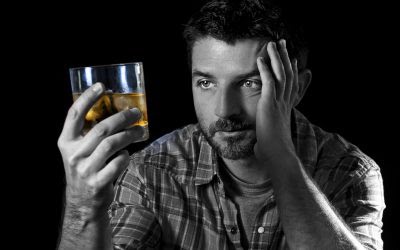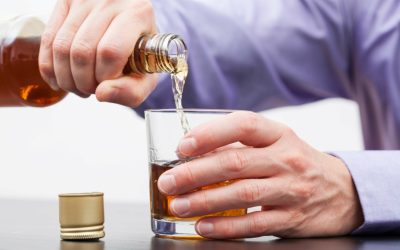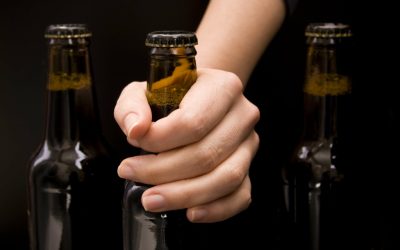Overcoming an SUD is not as simple as resisting the temptation to take drugs. 2 in 3 adults who ever had a mental health problem considered themselves to be recovering or in recovery. Break the holiday drinking cycle by understanding emotional triggers, adopting small habit shifts, and reducing reliance on alcohol.
Everyone deserves addiction treatment that works — including those in jail
She found treatment that worked and has lived drug-free for more than 20 years. Mable-Jones lost a decade to addiction, entering rehab and relapsing repeatedly. A separate study published by the CDC and the National Institute on Drug Abuse in 2020 found 3 out of 4 people who experience addiction eventually recover. Kelly co-authored a peer-reviewed study published last year that found roughly 22.3 million Americans — more than 9% of adults — live in recovery after some form of substance-use disorder. Now she’s a homeowner, she started a small business and says life is „awesome.“ Opioids are narcotic, painkilling drugs produced from opium or made synthetically.
- With repeated heavy drinking, however, tolerance develops and the ability of alcohol to produce pleasure and relieve discomfort decreases.
- Frequent intoxication and, more broadly, the addictive process often mean that people have violated their own values, morals, and standards.
- And they can help plan healthy joint activities to ensure that there are good days.
Pros and Cons of 12-Step Recovery Programs
The three models developed here – the cultural model, the subcultural model, and the Critical Medical https://bcbgdresses.net/shop-ladies-purses-womens-luggage.html Anthropology Model – display how addiction is not an experience to be considered only biomedically. Through consideration of addiction alongside the biological, psychological, social, cultural and spiritual (biopsychosocial–spiritual) elements which influence its experience, a holistic and comprehensive understanding can be built. Repairing relationships while recovering from substance use disorder can be challenging. It may take time, but you can recover from SUD and the relationship issues that stem from it.
- While no single treatment method is right for everyone, recovery is possible, and help is available for patients with SUDs.
- Trust is a fundamental part of every relationship, and it often takes a big hit during periods of substance use.
- The Stages of Change model accommodates this ebb and flow in individuals’ progress.
Why Gender-Specific Addiction Treatment Is Effective for Recovery

During acute and protracted withdrawal, a profound negative emotional state evolves, termed hyperkatifeia (hyper-kuh-TEE-fee-uh). These brain changes related to excessive alcohol use underlie many AUD symptoms. Our Recovery Coaches offer 20 support groups each week, and groups are offered every day of the week.

The Walker Center’s Gender-Specific Programs
- Recovery from addiction is not only possible, it is the rule, rather than the exception.
- Having a chaotic or disorganized lifestyle can also hinder your recovery.
- As part of the Consortium on Addiction Recovery Science, two HEAL-funded research teams are laying the groundwork for current and future science-based community participation in recovery research.
- The risk of addiction and how fast you become addicted varies by drug.
- Ultimately, embracing the nuances of each individual’s journey, TTM and MI provide a comprehensive framework for clinicians and individuals alike to navigate the intricate terrain of addiction recovery.
- Because addiction can affect so many aspects of a person’s life, treatment should address the needs of the whole person to be successful.
Having a “parachute” ready for such eventualities takes a little preparation and knowledge that some situations (such as a social event or party) will in fact be high risk. Strategically avoiding an event, a person, or a situation with a polite excuse can yield lifesaving dividends, especially early in recovery. In the first stage, precontemplation, https://www.insai.ru/slovar/gepatit substance users are largely unaware that their alcohol or drug use is causing problems. But to others around them, it may be very clear that substance use is costing more than just money.
- He was also able to convince his insurance company to pay for longer-term treatment.
- Peer or mutual support is not restricted to AA or NA; it is available through other programs that similarly offer regular group meetings in which members share their experiences and recovery skills.
- For all practical purposes with regard to drug use, the terms remission and recovery mean the same thing—a person regaining control of their life and reversing the disruptive effects of substance use on the brain and behavior.
Evidence-based guidelines can assist doctors with choosing the right treatment options. These guidelines help evaluate a patient’s clinical needs and situation to match them with the right level of care, in the most appropriate available setting. For more information https://louisvuittonborseitalia.com/americas-secret-forty-five-million-addiction.html on evidence-based guidelines visit Addiction Medicine Primer.


Action involves actively modifying behavior by making specific, observable changes to address the addictive behavior. Contemplation is the stage in which individuals become aware of the problems caused by their addiction and are considering change. Although they may not fully commit, they weigh the costs and benefits of making a shift. With hard work, patience, and love (for yourself and others), reconnecting with the people you care about most and building new, stronger relationships is totally possible. For the person living with SUD who feels rejected, Green notes that this isolation can make it more challenging to receive the emotional support needed during recovery.


Hinterlasse einen Kommentar
Du musst angemeldet sein, um einen Kommentar schreiben zu können.